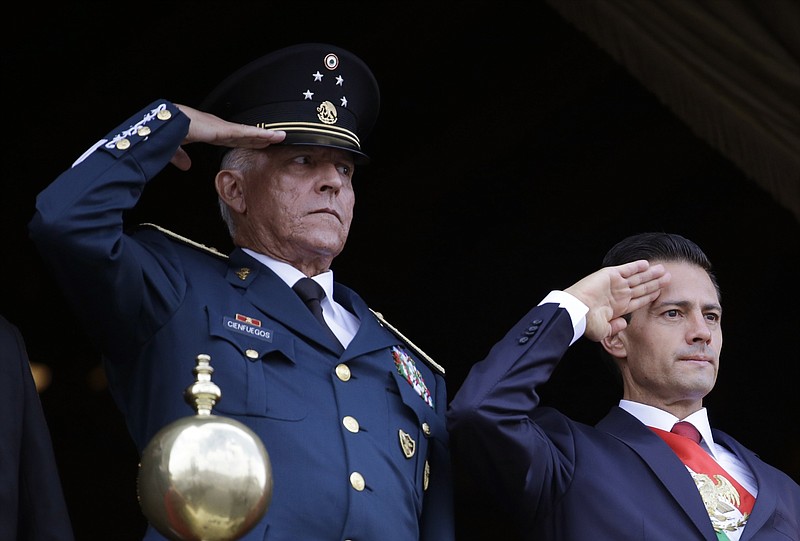MEXICO CITY (AP) - Mexico said Thursday it will no longer allow officials accused of corruption to be tried in the United States, a move that could end a decades-old tradition in which most of Mexico's high-profile drug-trafficking and corruption cases have been tried north of the border.
However, the extent of the new policy was unclear, and officials suggested some extraditions could continue.
There was no immediate comment from U.S. officials on Mexico's bombshell statement, but it came one day after the U.S. dropped a high-profile drug trafficking and money laundering case against a former Mexican defense secretary.
The announcement suggests the fallout from the arrest of former Gen. Salvador Cienfuegos - which enraged Mexico when the Justice Department announced it last month - is far broader than previously known.
"Whoever is culpable according to our laws will be tried, judged and if applicable sentenced in Mexico, and not in other countries, and that is the basis which has been encouraged with this agreement," Foreign Relations Secretary Marcelo Ebrard said. "That is what has been discussed, what has been agreed and what has been maintained with U.S. authorities."
U.S. officials have given no hint the agreement went beyond the Cienfuegos case, and the White House did not respond to questions about the matter or Ebard's comments Thursday.
Ebrard's statement was not clear on whether Mexico would continue extraditing accused drug traffickers to face charges in U.S. courts, as it has done often in the past, or whether he was only referring to officials accused of collaborating with drug gangs.
On Tuesday, the U.S. Department of Justice requested drug trafficking and money laundering charges against Cienfuegos be dismissed and he be returned to Mexico in the interest of maintaining cross-border cooperation. That decision came after reports that Mexico had threatened to expel the Drug Enforcement Administration's regional director and agents.
President Andrés Manuel Lpez Obrador denied that Thursday, saying, "We didn't threaten anybody. All we did was express our disagreement."
"We did not threaten to expel the agents. We said we want to be informed and for the cooperation agreements to be respected," Lpez Obrador said, adding, "I think it is an injustice for innocent people to be put on trial."
"You cannot allow foreign agencies to try Mexicans if there is no proof," said Lpez Obrador, who depicted it as a national sovereignty issue. "Just because they are other countries' legal institutions, does that make them the owners of justice and rectitude."
Cienfuegos was returned to Mexico on Wednesday and was promptly released.

